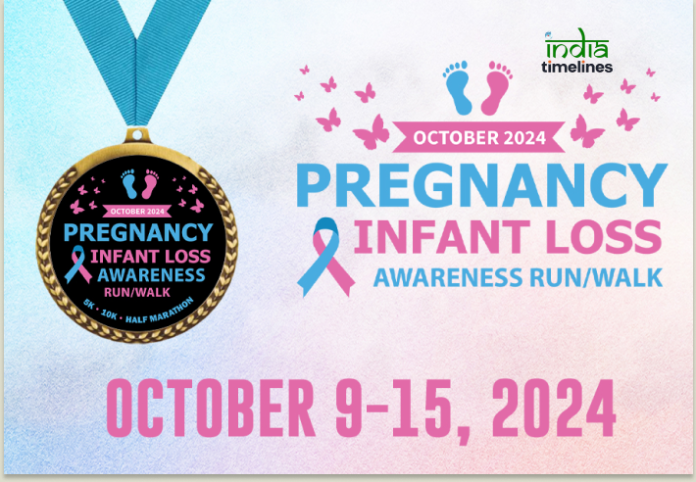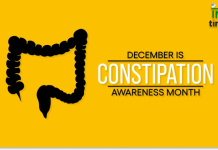
Every year, on October 15th, the world comes together to observe World Pregnancy and Infant Loss Remembrance Day. It’s a day marked by the shared grief, hope, and memories of those who have experienced the profound loss of a pregnancy or infant. This day serves as an opportunity for parents, families, and friends to honor the short lives of babies who were lost through miscarriage, stillbirth, or neonatal death. As we approach World Pregnancy and Infant Loss Remembrance Day 2024, let us explore the significance of this day, the impact of pregnancy and infant loss on families, and the importance of raising awareness and breaking the silence surrounding these heartbreaking experiences.
The History and Purpose of World Pregnancy and Infant Loss Remembrance Day
World Pregnancy and Infant Loss Remembrance Day originated in the United States in 1988 when President Ronald Reagan declared October as Pregnancy and Infant Loss Awareness Month. The specific day of October 15th was chosen as a global day of remembrance in 2002. Since then, this observance has spread across various countries, including Canada, Australia, the United Kingdom, and many others.
The purpose of the day is twofold:
- Remembrance: To provide a space for families to honor and remember their lost babies, offering solace and support to those who have experienced such a loss.
- Awareness: To bring public attention to pregnancy and infant loss, breaking the taboo and stigma that often surrounds these topics, and encouraging open conversation and support for affected families.
The Impact of Pregnancy and Infant Loss
For those who have never experienced it, the impact of pregnancy and infant loss can be difficult to fully grasp. The emotions are raw, complex, and can leave families with a profound sense of grief, guilt, and isolation. While every experience is unique, the common thread is the deep love and attachment parents have for their babies, even if their time with them was brief.
Types of Pregnancy and Infant Loss
There are several types of pregnancy and infant loss that families may face:
- Miscarriage: This is the most common form of pregnancy loss, occurring before the 20th week of pregnancy. Miscarriages are often caused by chromosomal abnormalities, but the exact cause is not always known. Unfortunately, miscarriages are sometimes dismissed as being “common,” which can lead to a lack of validation for grieving parents.
- Stillbirth: Stillbirth occurs when a baby is born without signs of life after the 20th week of pregnancy. This type of loss can be particularly devastating, as parents may have already bonded with their baby through ultrasounds, kicks, and other signs of development.
- Neonatal Death: This occurs when a baby is born alive but passes away within the first 28 days of life, often due to complications during birth or premature delivery. For parents, this is an especially painful experience, as they may have had brief moments with their newborn before losing them.
- Sudden Infant Death Syndrome (SIDS): SIDS refers to the sudden and unexplained death of an otherwise healthy infant, usually during sleep. It often leaves parents grappling with unanswered questions and immense grief.
The Silence and Stigma Surrounding Pregnancy and Infant Loss
One of the most difficult aspects of pregnancy and infant loss is the silence that surrounds it. While it is a tragically common experience (with studies showing that up to 1 in 4 pregnancies end in miscarriage), many people feel uncomfortable discussing it. Parents may be met with well-meaning but hurtful comments like “At least you can try again” or “It wasn’t meant to be.” Such remarks can invalidate the intense grief that parents feel.
The lack of open dialogue often causes parents to grieve in isolation. Many feel that they must “move on” quickly or hide their emotions to avoid making others uncomfortable. However, the pain of losing a pregnancy or an infant can last for years, and parents need space to grieve and process their emotions without judgment.
The Importance of Raising Awareness
Raising awareness about pregnancy and infant loss is crucial to breaking the stigma. World Pregnancy and Infant Loss Remembrance Day encourages people to share their experiences, listen with empathy, and support those who are grieving. Increased awareness can lead to more resources and support networks for affected families. It also provides an opportunity for medical professionals, researchers, and advocacy groups to work together to reduce the rates of pregnancy and infant loss and improve care for grieving parents.
Why Awareness Matters:
- Support for Families: When awareness is raised, families who have experienced loss can find comfort in knowing they are not alone. Many may join support groups or connect with others who have gone through similar experiences, helping them navigate their grief.
- Education and Research: Raising awareness encourages more research into the causes of pregnancy and infant loss, including stillbirth and neonatal death. It also educates people on important preventative measures, such as safe sleep practices to reduce the risk of SIDS.
- Compassionate Care: Healthcare providers can improve their communication and support for parents who experience pregnancy or infant loss. Awareness helps medical professionals understand the emotional impact of these losses and adopt more compassionate approaches when delivering such news.
Ways to Observe World Pregnancy and Infant Loss Remembrance Day 2024
There are many ways to observe World Pregnancy and Infant Loss Remembrance Day, whether you are a parent who has experienced loss or a supporter who wishes to stand in solidarity. Here are some meaningful ways to honor this day:
1. The Wave of Light
One of the most recognized global observances is the “Wave of Light.” On October 15th, at 7:00 PM in each time zone, participants are encouraged to light a candle in memory of the babies they have lost. As the candles are lit around the world, they create a continuous wave of light that honors the memories of these babies. Social media often plays a role, with parents sharing pictures of their candles along with messages of remembrance.
2. Memorial Events and Ceremonies
Many communities hold local memorial services, walks, or ceremonies to honor lost babies. These events provide families with the opportunity to gather, share their stories, and find comfort in the support of others who have experienced similar losses.
3. Create a Personal Remembrance Ritual
Some families create their own rituals to honor their lost babies. This could include planting a tree or flowers in their memory, writing letters to their babies, or creating memory boxes filled with items that remind them of their pregnancy or child.
4. Wear Pink and Blue Ribbons
The pink and blue ribbon has become a symbol of pregnancy and infant loss awareness. Wearing these ribbons or sharing them on social media can help start conversations about the importance of acknowledging and supporting those affected by these losses.
5. Share Your Story
For those who feel comfortable, sharing their story of loss can be a powerful way to raise awareness and break the silence. Many people turn to social media or blogs to share their experiences, offering hope and solidarity to others going through similar grief.
Moving Forward with Compassion
As we approach World Pregnancy and Infant Loss Remembrance Day 2024, it’s important to remember the babies who were lost and the families who carry their memories. While this day is marked by grief, it is also a day of hope—hope that through awareness, compassion, and understanding, families will feel less isolated in their grief.
If you know someone who has experienced pregnancy or infant loss, reach out to them. A simple message of love, a moment of silence, or an offer to listen can make a world of difference to a grieving parent. Together, by raising awareness and showing empathy, we can ensure that no family has to suffer in silence.
India Time Lines
Conclusion
World Pregnancy and Infant Loss Remembrance Day is a crucial observance that brings much-needed awareness to the reality of pregnancy and infant loss. It’s a day to honor the lives that were too brief, to support grieving families, and to continue advocating for greater awareness and understanding. As we light our candles on October 15th, 2024, we remember the babies who are gone but never forgotten, and we stand with the families who continue to carry their memory.



































